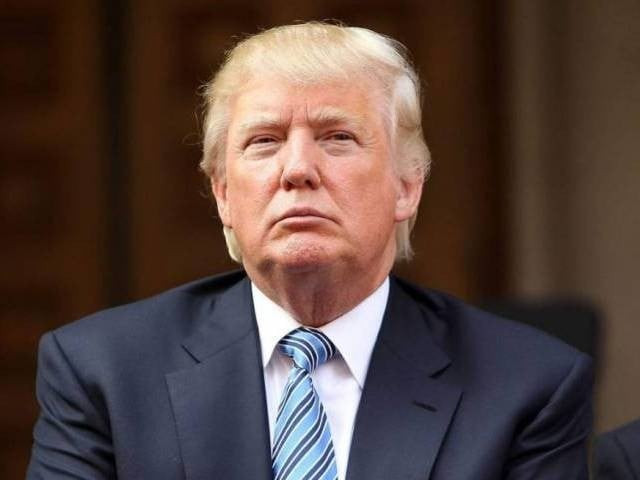The growing US presence in Pakistan’s neighbourhood
Every day brings new but adverse developments concerning America’s relations with Iran

Every day brings new but adverse developments concerning America’s relations with Iran. PHOTO: FILE
There are two individuals in the US administration who are pushing their country towards a possible all-out war with Iran. The first, of course, is President Trump. He has a problem with Iran for two reasons. He is anti-Islam and anti-Muslim and sees Iran as an aggressive promoter of the Islamic faith. The President is also under the influence of Benjamin Netanyahu, recently elected to the fifth term as prime minister of Israel. The Israeli leader has convinced the American President that Iran presents an existential threat to the Jewish state. Israel has strong support in the United States not only of the powerful Jewish community but also of the Evangelical Christians whose interpretation of their scripture has the Jewish command of all of Palestine as a way towards the second coming of Christ.
The other person responsible for the adoption by Washington of a hardline approach towards Iran is the influence of the national security adviser, John Bolton. Dexter Filkins of The New Yorker has a long Bolton profile in the magazine’s May 6 issue. In it, he tries to explain the long-cultivated hostility of Bolton towards Iran. His office is a few steps away from President Trump’s Oval Office. He sees Trump every morning before the President begins his day and every evening when he retires to his private quarters. Filkins, when he went to interview Bolton for the profile, saw on the wall of his office the framed executive order signed by Trump that pulled the United States out of the nuclear deal negotiated with Iran by Barack Obama in 2015. Bolton told Filkins that the day Trump signed that order was the happiest in his long career in public service.
The tit-for-tat relationship between Iran and the United States took the two countries to a near-war situation on Monday, May 6, when the Pentagon decided to dispatch the Aircraft Carrier Abraham Lincoln escorted by a fleet of navy ships to the Persian Gulf. The Pentagon issued a statement that cited “heightened Iranian readiness to conduct offensive operations against US forces and our interests” as the reason for moving ships closer to Iran. An agency spokesman said the carrier deployment “ensured we have forces” in the region to “defend American personnel”.
The navy move followed two earlier decisions. In one, Washington refused to grant further extension to China, India, Japan and South Korea that had been allowed to import oil from Iran when the United States reimposed sanctions on Iran. Iraq was also treated as a special case as it was allowed to import energy from Iran in the form of electricity. This was done after Washington withdrew from the Obama-era nuclear deal with Iran. Under the 2015 arrangement, Iran shipped roughly 97% of its nuclear fuel stockpile out of the country. With that done, experts didn’t believe Iran had enough weapon-grade material on hand to make a nuclear bomb. By closing the entire foreign market for Iranian oil, the United States aimed to produce enough pressure on the Iranian economy that would bring people out on the street and possibly cause regime change. That was all along the aim pursued by John Bolton. In response, Iran said that it would protect itself from what it called “economic terrorism”.
The second action resulted in placing Iran’s Revolutionary Guards Corps on the State Department’s list of foreign terrorist organisations. This was the first time that the terrorist designation was given to an arm of another nation’s government. In response, President Hassan Rouhani of Iran declared all American forces in the Middle East terrorists and labelled the United States government a state sponsor of terrorism. In early 2019, Bolton declared that the 5,200 American troops that remained in Iraq should stay there to “watch Iran”. There are no known attacks against American troops in Iraq from armed groups known as Popular Mobilisation Forces, some of which are linked to Iran. According to one account, “there are some 30 armed groups in Iraq that are now part of the Iraqi forces. Most of them were formed to help fight the Islamic State when the Iraqi Army collapsed in 2014, and some were trained and armed by Iran.” The fight against the ISIS also involved the United States. For some time, the two countries were on the same side of the many conflicts in the Middle East.
Every day brings new but adverse developments concerning America’s relations with Iran. Secretary of State Mike Pompeo paid a visit to Iraq on April 6 and met senior leaders of the country to ensure that Baghdad does not move fully into the Iranian orbit. There was intelligence that Iran may be positioning missiles that could be used against US forces in the region. This, in other words, is a crisis in development. If it escalates, it will bring serious disturbance right in Pakistan’s neighbourhood, hence posing awkward policy choices for Islamabad.
Published in The Express Tribune, May 13th, 2019.
Like Opinion & Editorial on Facebook, follow @ETOpEd on Twitter to receive all updates on all our daily pieces.

















COMMENTS
Comments are moderated and generally will be posted if they are on-topic and not abusive.
For more information, please see our Comments FAQ